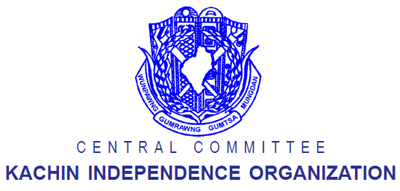The new Burmese government, which was formed in March after the military nominally transferred power to civilians elected in a widely criticized election, shows no real willingness to resolve the long the standing civil war with armed ethnic groups, according to a statement released today by the Kachin Independence Organization (KIO) Central Committee.

The statement is a response to the criticism of the KIO by the government made during its first press conference in Naypyidaw, on August 12.
The KIO’s statement criticized the new administration for not demonstrating any willingness to resolve long standing political problems in the country through political negotiation, including the civil war, ethnic conflicts and human rights violations.
The KIO criticized the government for portraying the KIO and other ethnic armed groups as insurgents and terrorist groups.
The KIO, the second strongest ethnic armed group in the country, held negotiations with successive central governments in 1963, 1972, 1980-81 and 1994 to seek a political solution to ethnic issues. Every meeting failed because the KIO was pressured to surrender by the government.
After ending the 1994 ceasefire agreement on June 12th this year, delegates from both sides met on June 30 and August 2-3. However, no agreement has been reached for a permanent ceasefire agreement.
Lar Nan, Joint General Secretary-2 of the KIO told the Kachin News Group the ceasefire negotiations cannot succeed because there are two major disagreements.
The KIO wants to solve political problems using the principles of the 1947 Panglong Agreement but the government wants to solve the problems on the basis of the military-designed 2008 Constitution.
The KIO and other ethnic armed groups believe all political problems in the country are caused by successive governments failing to follow the Panglong Agreement, the historic treaty which formed the Union of Burma through the cooperation of ethnic Burman, Kachin, Shan and Chin representatives.
The civil war started early this year after the new government pressured Kachin, Mon, Karen, Wa and Shan ethnic ceasefire groups to transform into the Burmese Army-controlled Border Guard Force, without offering political dialogue.



